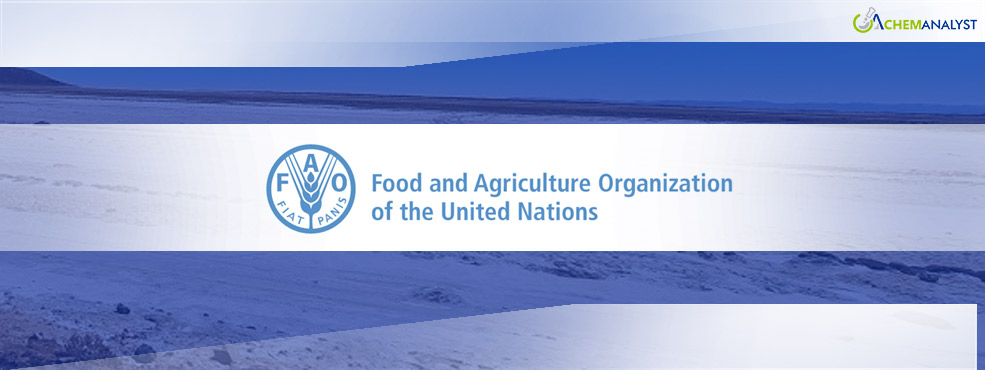Welcome To ChemAnalyst

The Food and Agriculture Organization of the United Nations (FAO) has unveiled its first comprehensive global assessment of salt-affected soils in 50 years, revealing a critical challenge for environmental sustainability and food security. Presented at the International Soil and Water Forum 2024 in Bangkok, the Global Status of Salt-Affected Soils report highlights that nearly 1.4 billion hectares—more than 10% of the world’s total land area—are impacted by salinity, with an additional one billion hectares at risk due to climate change and human activities.
Excessive soil salinity reduces fertility, leading to crop yield losses of up to 70% for staples like rice and beans in severely affected regions. This comes at a time when the world faces an urgent need to increase food production to sustain a growing global population. With salinity already affecting 10% of irrigated and rainfed croplands, the report underscores the looming threat of aridity trends. Current models predict that, under existing climate conditions, salt-affected land could expand to cover up to 32% of the global land surface, with the majority of this expansion occurring in developing countries.
Ten nations, including Afghanistan, Australia, China, and the United States, collectively account for 70% of the world’s salt-affected soils. The drivers of salinization are both natural and human-induced, ranging from rising sea levels and permafrost thawing to poor agricultural practices like irrigation with low-quality water, deforestation, and excessive fertilizer use. Alarmingly, global freshwater use has increased sixfold over the past century, exacerbating groundwater salinization through aquifer overexploitation.
Strategies for Sustainable Soil Management
The report emphasizes the need for urgent action, presenting a roadmap for mitigating and adapting to salinity challenges. Sustainable practices include mulching, better drainage systems, improved crop rotations, and the use of salt-tolerant plants like halophytes. Emerging solutions such as bioremediation—using organisms to restore soil health—offer promising pathways.
“The report outlines strategies for recovering salt-affected soils, linking sustainable management with water quality and food production,” noted Lifeng Li, Director of FAO’s Land and Water Division, and Jorge Batlle-Sales, Chair of INSAS.
The FAO also calls for a robust legal framework to protect natural saline ecosystems and promote sustainable management of agricultural soils under irrigation, ensuring long-term soil productivity and food security for future generations.
Water Reports Highlight Urgent Challenges
The Bangkok event also featured two FAO progress reports addressing global water use and pressure on freshwater resources. These reports, tied to UN Sustainable Development Goals (SDG) indicators, underscore the importance of enhancing agricultural resilience and securing ecosystem balance in water-stressed regions.
As the climate crisis accelerates, the FAO’s assessment serves as a critical wake-up call to prioritize soil and water resource management, ensuring a sustainable future for agriculture and global food security.
We use cookies to deliver the best possible experience on our website. To learn more, visit our Privacy Policy. By continuing to use this site or by closing this box, you consent to our use of cookies. More info.
